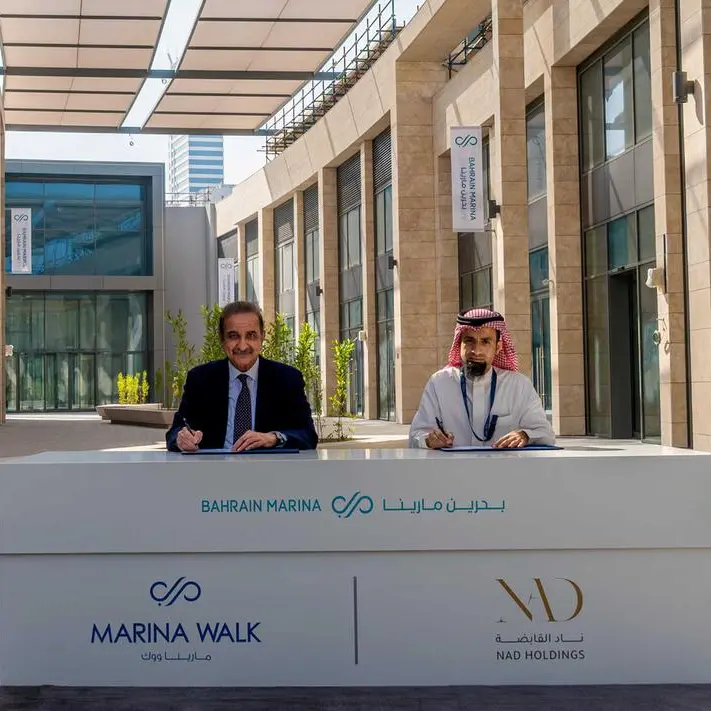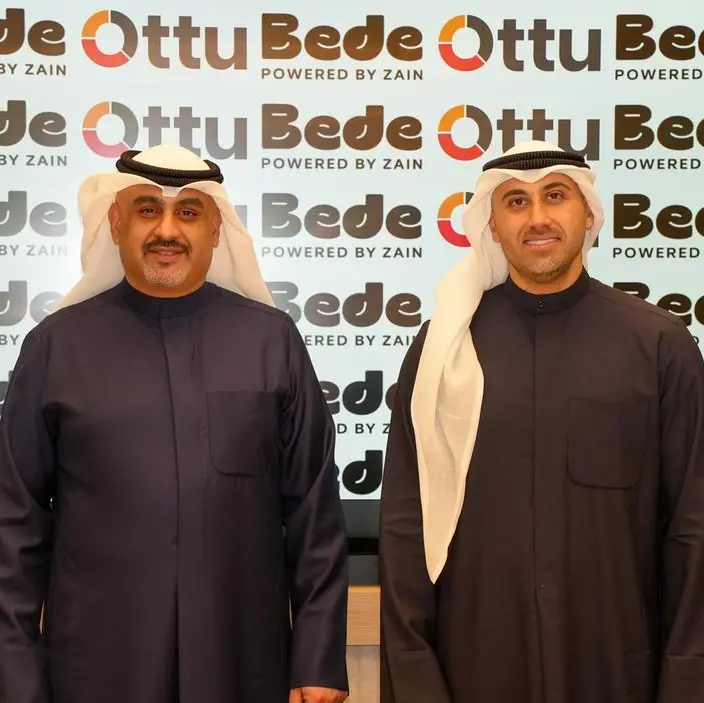Cairo: The Egyptian non-oil private sector moved closer to stabilisation during June. New orders and employment both contracted at softer rates, offsetting the accelerated reduction in output. In fact, staffing levels fell at the slowest rate since June 2015. Inflationary pressures meanwhile continued to build as overall input costs rose further. As a result, output prices increased at an accelerated pace.
The survey, sponsored by Emirates NBD and produced by IHS Markit, contains original data collected from a monthly survey of business conditions in the Egyptian private sector.
Commenting on the Egypt PMITM survey, Daniel Richards, MENA Economist at Emirates NBD, said:
“The June contraction shown by the PMI was marginally slighter than that in May, but the failure to consistently post above the 50.0 mark reflects the fact that Egypt’s economic recovery has to now been achieved primarily through external rebalancing and government investment, and that the private sector continues to lag. That is not to say that there has been no improvement, however; the average PMI reading of 49.6 recorded in both Q1 and Q2 make them the strongest quarters in years, and business optimism remains fairly upbeat.”
Key Findings
- Headline PMI rises from May
- New orders fall at softer pace
- Positive sentiment towards growth prospects strengthens
The seasonally adjusted Emirates NBD Egypt Purchasing Managers’ Index™ (PMI) – a composite indicator designed to give an accurate overview of operating conditions in the non-oil private sector economy – rose to 49.4 during June, from 49.2 in May, signalling a deterioration in the health of the non-oil private sector. That said, despite remaining in contraction territory, the latest figure was consistent with only a marginal decline that was softer than in the prior survey period.
A modest fall in output contributed to the overall decline in business conditions at the end of the second quarter. Anecdotal evidence suggested that weaker demand was partially responsible for the contraction in business activity. A subsequent reduction in new orders was noted in tandem with lower levels of new export business. However, both total new orders and export orders decreased to lesser extents than observed in May.
As volumes of new business fell, non-oil private sector companies reported a further decline in staffing levels during June. However, job shedding was only fractional, softening from the prior survey period to the second-slowest pace observed in the current 37-month sequence of contraction.
Purchasing activity meanwhile slipped into contraction territory in June, with firms mentioning a lack of liquidity. However, the rate of reduction was only marginal. Furthermore, stocks of purchases continued to decline, though to a lesser extent than that observed mid-quarter.
Elsewhere, firms continued to report inflationary pressures during June. Both purchase prices and staff costs underpinned the increase in overall input charges as raw material prices and living costs rose. The rate of inflation remained relatively weak, despite accelerating slightly from May.
In response to rising cost burdens, firms increased their average selling prices during June. However, survey evidence indicated that firms partially absorbed higher input prices as overall costs rose at a stronger rate than output charges.
Meanwhile, businesses remained confident that output would grow over the coming year. Furthermore, the degree of optimism strengthened from May, underpinned by expectations of further investments and new contracts.
-Ends-
The next Egypt PMI Report will be published on August 5th 2018 at 06:15 (CAIRO) / 04:15 (UTC)
For further information, please contact:
Ibrahim Sowaidan
Senior Vice-President, Head - Group Corporate Affairs
Emirates NBD
Telephone: +971 4 609 4113 / +971 50 6538937
Email: ibrahims@emiratesnbd.com
The Emirates NBD Egypt Purchasing Managers’ Index is based on data compiled from monthly replies to questionnaires sent to purchasing executives in approximately 450 private sector companies, which have been carefully selected to accurately represent the true structure of the Egyptian non-oil economy, including manufacturing, services, construction and retail. The panel is stratified by Standard Industrial Classification (SIC) group, based on industry contribution to GDP. Survey responses reflect the change, if any, in the current month compared to the previous month based on data collected mid-month. For each of the indicators the ‘Report’ shows the percentage reporting each response, the net difference between the number of higher/better responses and lower/worse responses, and the ‘diffusion’ index. This index is the sum of the positive responses plus a half of those responding ‘the same’.
The Purchasing Managers’ Index™ (PMI™) is a composite index based on five of the individual indexes with the following weights: New Orders - 0.3, Output - 0.25, Employment - 0.2, Suppliers’ Delivery Times - 0.15, Stock of Items Purchased - 0.1, with the Delivery Times index inverted so that it moves in a comparable direction.
Diffusion indexes have the properties of leading indicators and are convenient summary measures showing the prevailing direction of change. An index reading above 50 indicates an overall increase in that variable, below 50 an overall decrease. IHS Markit do not revise underlying survey data after first publication, but seasonal adjustment factors may be revised from time to time as appropriate which will affect the seasonally adjusted data series.
About Emirates NBD
Emirates NBD is a leading banking Group in the region. As at 31st December 2017, total assets were AED 470.4 Billion, (equivalent to approx. USD 128 Billion). The Group has a significant retail banking franchise in the UAE and is a key participant in the global digital banking industry, with over 90 per cent of all financial transactions and requests conducted outside of its branches. The bank was declared the Most Innovative Financial Services Organization of the Year at the 2017 BAI Global Innovation Awards.
The bank currently has 230 branches and 1040 ATMs and SDMs in the UAE and overseas and a large social media following, being the only bank in the Middle East ranked among the top 20 in the ‘Power 100 Social Media Rankings’, compiled by The Financial Brand. It is a major player in the UAE corporate and retail banking arena and has strong Islamic Banking, Global Markets & Treasury, Investment Banking, Private Banking, Asset Management and Brokerage operations.
The Group has operations in the UAE, Egypt, the Kingdom of Saudi Arabia, India, Singapore, the United Kingdom and representative offices in China and Indonesia.
The Group is an active participant and supporter of the UAE’s main development and community initiatives, in close alignment with the UAE government’s strategies, including financial literacy and advocacy for inclusion of People with Disabilities under its #Together Limitless platform. Emirates NBD Group is an official premier partner of EXPO 2020. For more information, please visit: www.emiratesnbd.com
About IHS Markit (www.ihsmarkit.com)
IHS Markit (Nasdaq: INFO) is a world leader in critical information, analytics and solutions for the major industries and markets that drive economies worldwide. The company delivers next-generation information, analytics and solutions to customers in business, finance and government, improving their operational efficiency and providing deep insights that lead to well-informed, confident decisions. IHS Markit has more than 50,000 business and government customers, including 80 percent of the Fortune Global 500 and the world’s leading financial institutions.
IHS Markit is a registered trademark of IHS Markit Ltd. and/or its affiliates. All other company and product names may be trademarks of their respective owners © 2018 IHS Markit Ltd. All rights reserved.
The intellectual property rights to the Emirates NBD Egypt PMI™ provided herein are owned by or licensed to IHS Markit. Any unauthorised use, including but not limited to copying, distributing, transmitting or otherwise of any data appearing is not permitted without IHS Markit’s prior consent. IHS Markit shall not have any liability, duty or obligation for or relating to the content or information (“data”) contained herein, any errors, inaccuracies, omissions or delays in the data, or for any actions taken in reliance thereon. In no event shall IHS Markit be liable for any special, incidental, or consequential damages, arising out of the use of the data. Purchasing Managers’ Index™ and PMI™ are either registered trade marks of Markit Economics Limited or licensed to Markit Economics Limited. Emirates NBD use the above marks under licence. IHS Markit is a registered trade mark of IHS Markit Limited and/or its affiliates.
© Press Release 2018Disclaimer: The contents of this press release was provided from an external third party provider. This website is not responsible for, and does not control, such external content. This content is provided on an “as is” and “as available” basis and has not been edited in any way. Neither this website nor our affiliates guarantee the accuracy of or endorse the views or opinions expressed in this press release.
The press release is provided for informational purposes only. The content does not provide tax, legal or investment advice or opinion regarding the suitability, value or profitability of any particular security, portfolio or investment strategy. Neither this website nor our affiliates shall be liable for any errors or inaccuracies in the content, or for any actions taken by you in reliance thereon. You expressly agree that your use of the information within this article is at your sole risk.
To the fullest extent permitted by applicable law, this website, its parent company, its subsidiaries, its affiliates and the respective shareholders, directors, officers, employees, agents, advertisers, content providers and licensors will not be liable (jointly or severally) to you for any direct, indirect, consequential, special, incidental, punitive or exemplary damages, including without limitation, lost profits, lost savings and lost revenues, whether in negligence, tort, contract or any other theory of liability, even if the parties have been advised of the possibility or could have foreseen any such damages.



















